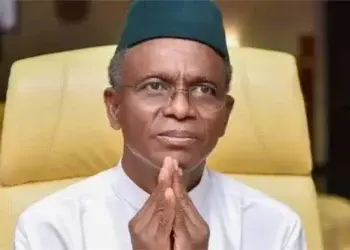The All Progressives Congress (APC) Presidential Campaign Council (APCPCC) and the Tinubu-Shettima Grassroot Independent Campaign Council (TSGICC) in Rivers State, have declared that they never agreed to vote for the preferred gubernatorial candidate of Governor Nyesom Ezenwo Wike in the March 11 elections in the state.A top member of the two groups, Chief Tony Okocha, had while addressing journalists in Port Harcourt on Thursday, urged members and supporters of the party in the state, to vote for the governor’s preferred choice in the March 11, 2023 governorship election in appreciation of his support towards the emergence of APC’s Senator Ahmed Bola Tinubu as President-elect.But, in a swift reaction, the APCPCC and the TSGICC, in a statement signed by the state coordinator, Sir Augustine Nwokocha and two others, said Okocha spoke for himself and not for the two groups and APC members in the state.The statement reads in part: “Our attention has been drawn to a press conference held by Chief Anthony C. Okocha and the statement made therein, purportedly for and on behalf of APC PCC/TSGICC Rivers State. “While we join Chief Okocha to congratulate our President elect Senator Bola Ahmed Tinubu, his Vice, Senator Kashim Shetima and our party, the All Progressives Congress (APC), for this historic victory against a very distractive and vehemently divisive campaign hinged basically on religion, ethnicity and the natural vagaries of our humanity (age and ill-health).”We state that the victory of our president-elect was a natural cause of event given his phenomenal pedigree as an astute politician per excellence, administrator with an unmatchable track record of achievements, foresight and bold visions. A man reputed as a Mason of Men.”It is important however to state that the credit for the victory of Bola Ahmed Tinubu and the APC in Rivers State belongs to all Rivers persons who turned out to vote for the candidate of our party and to the dynamic campaign structure that carried the message of Renewed Hope to all the ‘nooks and crannies’ of Rivers State.”We are not unmindful of the forces that coalesced to hand our President-elect this pan Nigeria victory at the polls and we trust in the incoming administration to fully demonstrate to every Nigerian that this vote of confidence shall never be misplaced or taken for granted. It is, however, insidious for any individual to appropriate the performance of APC in Rivers State during the just concluded presidential elections. “Furthermore, it is important to state that every opinion, expressed by Chief Tony Okocha in his aforesaid Press Conference, is his personal opinion as he neither spoke for the PCC, nor for the TSG/ICC led by my humble self, Sir Augustine Wokocha in Rivers State. “It is further important to state that at no time did the PCC/ICC meet to authorize Chief Tony Okocha to express the opinion and sentiments so expressed. PCC/ICC Nigeria, headquartered in Abuja and the President Elect, have not authorized any statement/sentiments such as those expressed by Chief Tony Okocha.”We therefore implore all Rivers residents who are eligible voters to turnup enmasse and reject the invitation of Chief Tony Okocha to support the extension of the rascality that the Rivers State Government of today represents and to massively come out, vote and insist that their votes count on the 11th of March, 2023 for a better Rivers State. “This election of 25th February, 2023 was a special one, it was special to the extent that victory was attained through the votes of under 36% of the total votes cast which in itself was under 11% of the population of Nigeria. “It therefore means that close to 90% of Nigerians for whatsoever reasons did not speak and of the under 11% of the populace that voted, over 60% had a contrary opinion as to by whom and how this country should be governed.”
Devastating Fire at Lagos Airport Disrupts Critical Air Traffic Operations
A catastrophic fire at Terminal 1 of Murtala Muhammed International Airport (MMIA) in Lagos has severely impacted the Nigerian Airspace...








